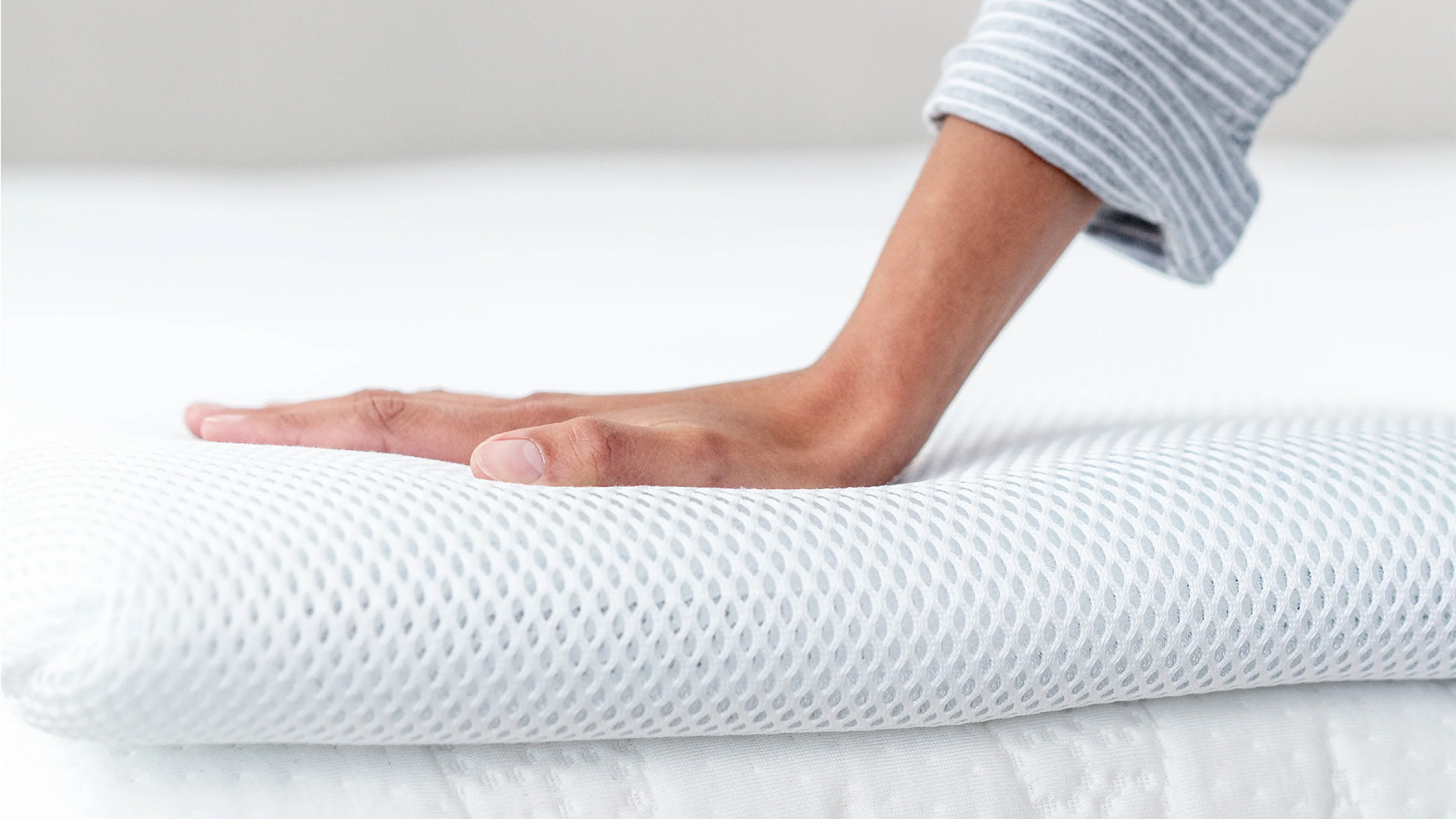
Waking up to a stiff neck is never fun. Aside from the pain, it can have a knock on effect on almost every aspect of your life, and it's possible that your mattress is the cause. A mattress that doesn't support your body while you sleep can cause all sorts of problems, including back, joint, and neck pain.
It is crucial for good sleep quality and your overall health to invest in a mattress that suits your sleeping position and body type. Our top picks in this year's best mattress guide for all sleepers offer features designed to ensure your spine stays aligned and your body is supported night long. However, there are ways to fix a mattress that's causing neck pain without forking out on a new bed.
While it is a common issue faced by many, neck pain can often be prevented. Your bed may feel cozy and comfortable when you first slide under the covers, but if it's not offering the right support, it might be time to make a change. Here we're looking at the tell-tale signs of neck pain caused by a mattress, and how to fix the problem.
Can a mattress cause neck pain?
Yes, an unsupportive mattress that doesn’t keep your body in correct alignment can cause a build up of pressure in the spine, shoulders and neck, causing you to wake with a painful, stiff neck.
Spinal alignment means the position of the spine when we’re engaged in our daily activities involving different positions like sitting, standing, and lying down. Good spinal alignment at all times and especially when you’re sleeping is important to maintain good overall physical health.
If your mattress sags, is too firm, or too soft for your sleeping position, your spine may not stay aligned all night long, resulting in neck pain.
How to fix a mattress that’s causing neck pain
1. Add a mattress topper for extra support

If your mattress is not particularly old, one way to fix the discomfort is to add a mattress topper. This can boost your bed’s overall support and feel.
Many of our top picks in our best mattress topper guide vary in materials, thickness and firmness and choosing one depends on your sleeping position and needs.
Both memory foam and latex toppers are popular for their firm yet comforting pressure relief. While mattress topper thickness varies from 2 to 7 inches, a 3 inch mattress topper is suitable for proper spinal alignment.
2. Change your sleep position
Changing your sleep position can help relieve pressure build up in the neck, especially if you predominantly sleep on your stomach. In fact, this has been the most unpopular position agreed by both sleepers and medical experts, as it strains your neck muscles.
Sleeping on your side or your back are considered the best positions as this keeps your spine in perfect alignment and evenly distributes your body weight.

3. Upgrade your mattress
If your current mattress doesn’t support your sleep position, it can cause your spine to dip out of alignment. Too soft and your spine may curve, too firm and pressure may build up.
While a mattress topper can help in the short term, it’s worth considering buying a new mattress if yours is over 10 years old or showing signs of wear and tear. Opt for a mattress that supports your sleeping position and body type, and consider one of the best mattresses for back pain as they can also ease neck pain.
4. Invest in a supportive pillow
How your mattress supports your sleep position plays a huge role in healthy spinal alignment. However, your pillow also plays a crucial part in the level of tension in your neck. Pillows are generally thought of as soft and cloud-like, but not everyone benefits from a plush head rest.
Depending on your preferences and sleep requirement, you can opt for a pillow made from different materials like memory foam, down, synthetic fibers, kapok or latex.
Memory foam can be a great option for people experiencing neck pain since it provides the required firmness and contouring for your head and neck to settle in a comfortable position.
When it comes to pillow loft, side sleepers will likely benefit from high-loft pillows to bridge the gap between the head and neck, while back and stomach sleepers require low-loft ones. Be sure to browse our best pillow guide to find the right choice for you.

3 signs your mattress is causing your neck pain
1. Your neck pain is worse in the morning
When experiencing pain, check to see if it’s immediately after you wake up. If a few minutes of stretching seems to alleviate it, it's likely your neck position was compromised in your sleep.
Waking up with a sore neck can be an indicator that your mattress isn’t supporting you properly. Stirring in your sleep and feeling that you’re straining your neck muscles when you’re supposed to be relaxed means your mattress isn't performing as it should.
2. You sleep on your stomach
Experts agree that sleeping on your stomach is one of the worst positions for your health, due to the stress it places on your neck and spine.
This is because when you sleep on your stomach, you have to turn your head to one side to breathe, twisting your neck muscles. Keeping your neck in the same position for a prolonged period of time, like throughout the night, can strain your muscles and cause pain.

3. Your mattress is over 10 years old
We recommend replacing your mattress every 7-10 years. While the average lifespan of a mattress is a maximum of 10 years, developing neck pain before that can be a sure sign that your bed needs replacing.
This is because over time and due to regular use, your mattress tends to sag with the inner coils loosening up or the foam softening. This compromises the support core, meaning your mattress can no longer cradle your body, leading to strain and tension, and ultimately, neck pain.







